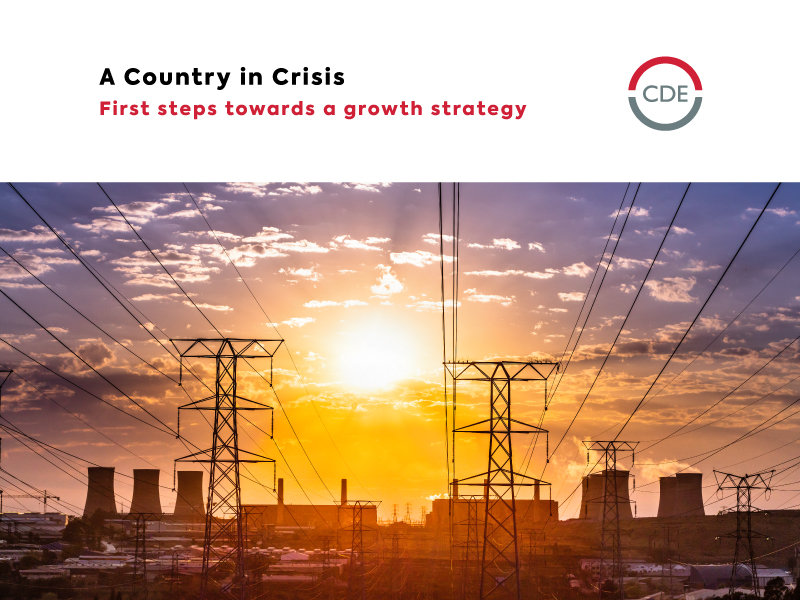
The issues facing Johannesburg are so complex and important that they cannot be resolved by any single interest group acting on its own, whether it be the city council, the ANC government, business leaders, or citizens, the CDE has found.
Click edit button to change this text.
Accordingly, it proposes, in its report issued today, that a national partnership be formed, tasked with realising the city council’s Joburg 2030 vision of turning the city into a competitive world city.
The partnership should comprise:
- A council of interests made up of representatives of key groupings with a stake in the city’s future, including the business community; national, provincial, and local government; and civil society;
- a task team of experts, responsible for formulating proposals to be submitted to the council, and including international experts in turning cities around for successful global competition; and
- working groups charged with developing effective action programmes in the following areas:
- Get the basics right
This should include lowering the crime rate, improving transport and telecommunications, relaxing labour regulations that constrain enterprise and employment, improving city management, and improving the city’s health systems (including its response to HIV/AIDS). - Make Johannesburg a competitive ‘open city’
This should involve addressing the skills shortage by recruiting skilled foreigners; dramatically improving training and education through harnessing the capacity of the private sector, and creating a globally competitive tax regime. - Introduce effective city-wide planning
This should involve moving away from the dominant focus on the inner city, and re-examining key nodes and the linkages between them with ‘world city’ concerns in mind. ‘For example,’ the report states, ‘the burgeoning economic corridor of Sandton-Midrand-Centurion has received far too little attention, and the negative consequences of this are now affecting current efficiency and future growth. The growth and performance of this vital corridor cannot be left to market forces or city planners alone. At the same time, Soweto and Orange Farm should also be more effectively linked to the rest of the urban region, and their potential for hosting smaller enterprises developed.’ - Strengthen the city’s neighbourhoods
This should be done by establishing a neighbourhood initiative fund, which will make money available for neighbourhood-based development projects; and improving local democratic accountability via the direct elections of local ward committees as well as local referenda. - Build an optimal relationship among Johannesburg and its neighbouring metropolitan areas
The regional nature of the three-metro urban sprawl comprising Johannesburg, Tshwane and Ekurhuleni should be thought through. - Reassess Johannesburg’s leadership needs
First, the status of the city’s political leadership needs to be addressed. ‘We need to fundamentally reassess how we govern and manage a world city such as this.’ Do we need a directly elected mayor? Running Johannesburg is one of the top 6 public sector jobs in the country but that is not how we currently see this. Second, an action plan should be evolved for involving senior business leaders in strategies to turn Johannesburg into a competitive world city. - Learn from international experience
Johannesburg can tap into considerable world experience on all the issues that now confront this city. This working group should research identify and research instructive experiences elsewhere. The benefits of linking Johannesburg with other cities which share its concerns or have similar interests – such as Sao Paulo or Atlanta – should be explored. - ‘Re-brand’ Johannesburg
A group of experts should be commissioned to produce a plan for re-branding Johannesburg and defining its public niche as a competitive world city. The plan also needs to include proposals of how this new image should be marketed, first to its own residents and then to a wider world.
The CDE report states: ‘Johannesburg will not remain even a secondary world city unless major initiatives are undertaken now. For this to happen, bold new steps are required, and the involvement of leaders and citizens not previously involved in Johannesburg’s future is essential.’
– CDE



